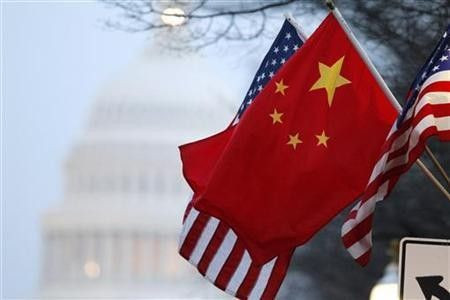Why the IMF's Projection about China Can't be Trusted
COLUMN: The economic projection of the IMF on China overtaking the US economy in 2016 can't be trusted because they're simply extrapolations of current conditions that perhaps ignores reality.

The IMF recently projected that China's economy will overtake the US economy by 2016, according to Brett Arends of MarketWatch*.
The World Bank's chief economist, meanwhile, thinks China will overtake the US by 2030 in US dollar terms. In real terms, it may be twice the size of the US economy in 2030, he said.
The IMF and World Bank's projections, however, shouldn't be trusted at all.
Economists at institutions like the IMF and World Bank have little imagination and assume that current conditions will continue indefinitely. Their "projections" should be more aptly named "adjusted extrapolations."
Here is how they do it:
1) Average the annual growth rate over some past period
2) Adjust that rate up or down a few percentage points based on contemporary biases
2) Extrapolate the adjusted growth rate over the desired period
These "adjusted extrapolations" are virtually worthless because the "adjustments" are guesses derived from plugging past data into models. Moreover, they're often wrong because reality doesn't simply extrapolate from historic data.
These economists are notorious for missing big picture events and shifts. They largely missed the 2008 global financial crisis and China's astronomical ascent in the 2000s.
Meanwhile, Goldman Sach's Jim O'Neill predicted China's rise before it happened and NYU Professor Nouriel Roubini predicted the financial crisis before it happened.
Currently, the foundation of China's economy may be extremely fragile, not that IMF economists would ever know it.
Roubini had the following to say about China:
"China is rife with overinvestment in physical capital, infrastructure and property. To a visitor, this is evident in sleek but empty airports and bullet trains (which will reduce the need for the 45 planned airports), highways to nowhere, thousands of colossal new central and provincial government buildings, ghost towns and brand-new aluminium smelters kept closed to prevent global prices from plunging.
Eventually, most likely after 2013, China will suffer a hard landing. All historical episodes of excessive investment – including East Asia in the 1990s – have ended with a financial crisis and/or a long period of slow growth."
Moreover, the economic model that propelled China's prosperity for the last few decades was based on debasing their currency and selling cheap goods to the US. So if China's economy depends on US consumption, how can its size ever overtake the US?
If Roubini and other China bears are right, the IMF and World Bank economists will have completely failed again.
If they're wrong and China overtakes the US in 2016, 2030, or another year, the IMF and World Bank's extrapolations still don't matter because their guess is as good as yours or mine.
*Arends said the projections are listed on the IMF's website at an obscure location. He said they were released about a week ago but no one really paid attention.
© Copyright IBTimes 2024. All rights reserved.





















